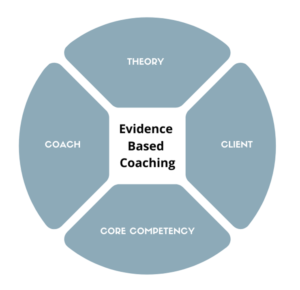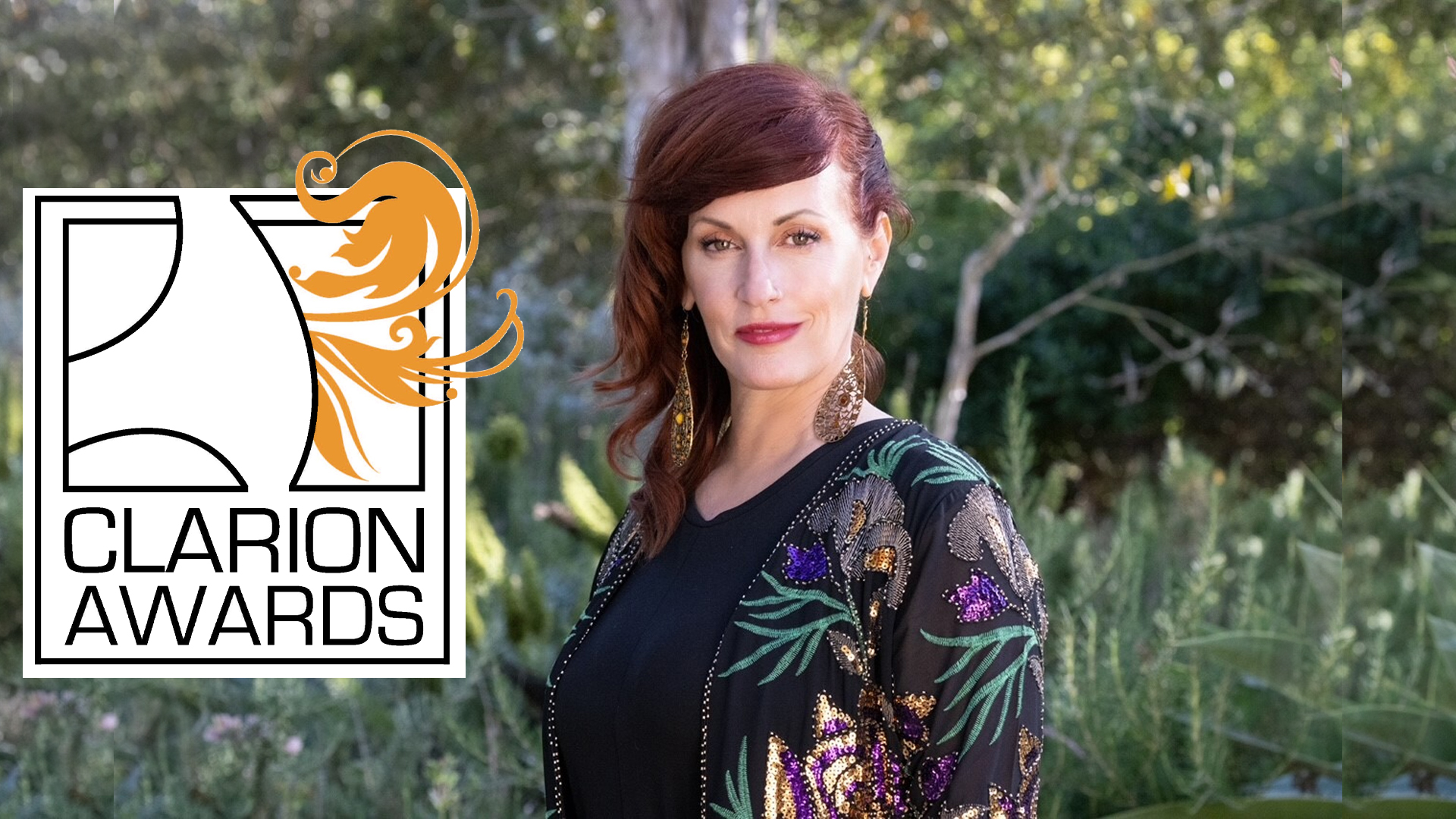
4 Pillars of EBC
In 1995, Thomas Leonard started the International Coach Federation (ICF) as a nonprofit organization for the coaching community. In 1999, accredited coach training programs were formed and by 2018, there were over 25,000 credentialed coaches and just over 1,000 Master Certified Coaches. The profession continues to grow and with that growth, new distinctions continue to surface.
The term evidence-based coaching was introduced in 2003 to demonstrate how professional coaching is anchored in empirical and theoretical knowledge versus what others may describe as loosely constructed trends in pop psychology.
In 2005, Fielding Graduate University began its accredited coach training program and was one of the first to include the evidence-based theoretical underpinnings. Fielding believes four pillars support coaching evidence.
- First, theories from multiple disciplines helped birth the profession, and their integration into coaching practice is essential.
- Second, we subscribe to the ICF core competencies and believe that coaching development should be grounded in this knowledge.
- Third, the coach is an instrument of change and knowledge. When coaches self-regulate with an awareness of self, they can be highly effective in creating growth and development in others.
- Last, the client brings a great deal of knowledge to the coaching engagement and successful coaches’ partner with their clients by understanding them in their full context.
Fielding Graduate University incorporates the pillars into the EBC curriculum in the following ways.
Pillar #1: Theory
Our fundamental role as a coach is to help create awareness with our clients. With awareness comes choice and a new mindset that help people realize they are not bound by either/or thinking or self-imposed limiting beliefs.
What distinguishes Evidence-Based Coaching from other types is the coach’s knowledge of theories, models, and associated tools that underpin our professional work. Theories explain human behavior or phenomenon in ways that help people understand they are not alone. Models help determine courses of action or ways of thinking and tools equip us to do or decide as we face challenges in our adult development.
One of the reasons the EBC program includes so many different theories and approaches is that we want EBC graduates to create a large toolbox to draw from for specific situations that may arise in coaching engagements. Fielding does not believe there is just one theory, model, assessment, or set of tools that work in every situation. Studying theories provides coaching with solid underpinning that is academic and evidence-based.
Depending on the type of coaching you decide to pursue, you will create your own personal toolbox, starting with the materials that you learn during the EBC program. As you become more familiar with these tools and models, you will be able to draw on them during a coaching conversation to provide insight for yourself and the client. Articles, books, videos, handouts, and other materials can also serve as persuasive homework that you can give your clients for further self-reflection.
Over time, as you begin to integrate theory and models into your coaching practice, you will develop your own favorite tools. Your work as a coach is to keep learning, growing, and staying open to different ways of doing this work. You might even find yourself developing your own methods.
Pillar #2: Core Competency
The ICF defines coaching as partnering with clients in a thought-provoking and creative process that inspires them to maximize their personal and professional potential. Originally there were eleven core competencies grouped into four categories. The ICF Global Board has approved a revised competency model that will go into effect in early 2021. There are now eight core competencies, and Fielding Graduate University is incorporating these into the EBC curriculum to ensure graduates are grounded in the competencies that will help them gain ICF credentials.
- Demonstrates Ethical Practice
- Embodies a Coaching Mindset
- Establishes and Maintains Agreements
- Cultivates Trust and Safety
- Maintains Presence
- Listens Actively
- Evokes Awareness
- Facilitates Client Growth
A great deal of time in the EBC program is dedicated to learning and practicing the ICF core competencies. They serve as a foundation of your coaching practice that you will build on throughout your career. With practice, these eight will be so hard-wired in your coaching, you will demonstrate them without self-conscious effort. They will move from front of brain to the back of brain and will guide all your client interactions. Fielding Graduate University intends for you to know the competencies so well that down the road when you pause to give your client advice or interrupt to tell them something from a consulting perspective, you do it with full awareness. You will then consciously pivot back into your role as a coach, inviting your client to respond to your perspective. As is said, you must know the rules before you can break them.
Pillar #3: The Coach (use of self)
Skillful coaching starts with the coach’s self-awareness and having a deep understanding of one’s own personal identity, strengths, values, character, ethics, weaknesses, biases, and interests. One powerful way to do this is through personal reflection and feedback. The EBC program provides many opportunities for you to be a reflective practitioner and share your learning with others in a way that inspires everyone’s growth. Over time, as you develop your professional identity as a coach, you will also get clarity on the type of clients you want to serve. Additionally, you will gain a better understanding of your personal interests in certain types of coaching, whether that be life coaching, executive coaching, business coaching, academic coaching, wellness coaching, or others. The use of self also includes being clear about what are your own issues versus the issues of your clients. This includes monitoring your reactions to what a client says or is trying to do. Knowing your triggers and hot buttons help separate your developmental work from your client’s work.
Pillar #4: The Client
Coaching is inherently client-centered. This means the coach’s agenda is always in service of the client’s agenda. For this reason, developing a coaching agreement at the beginning of a coaching session is critical. The coach needs to empower the client to determine the topic and the desired outcomes of coaching. Our clients also have unique contexts and intersections. They are never dealing with just one issue because no one experiences one-issue lives. Coaches must respect the client’s professional and personal settings and explore things from their perspective. This requires coaches to believe what the client says when they say they are struggling, not to question why they have a certain belief, but instead to explore how that belief serves them or blocks them from what they most want. Coaches also have to ensure they serve their clients in socially just ways. The core competencies will help coaches maintain presence and listen well to what the client needs.
In summary, the four pillars of Evidence-Based Coaching are critical for skillful coaching, and developing in these areas requires a lifelong journey. In time, you will determine your favorite theories and methods that align with your interests and your clients’ needs. Remember, coaching above all else, is about growth and managing change. There is no shortage of clients who need professional coaches, and your education and commitment to evidence-based approaches will serve you well as you pursue your coaching career.
Resources:
International Coach Federation https://coachfederation.org/core-competencies
Stober, D.R., & Grant, A.M. (2006). Evidence Based Coaching Handbook: Putting Best Practices to Work for Your Clients. San Francisco, CA: Wiley.
Contributors:
Dr. Carrie Arnold
Dr. Terry Hildebrandt
Dr. Leni Wildflower
Join Over 7,500 Fielding Alumni Located Around The World!
Change the world. Start with yours.™






Get Social